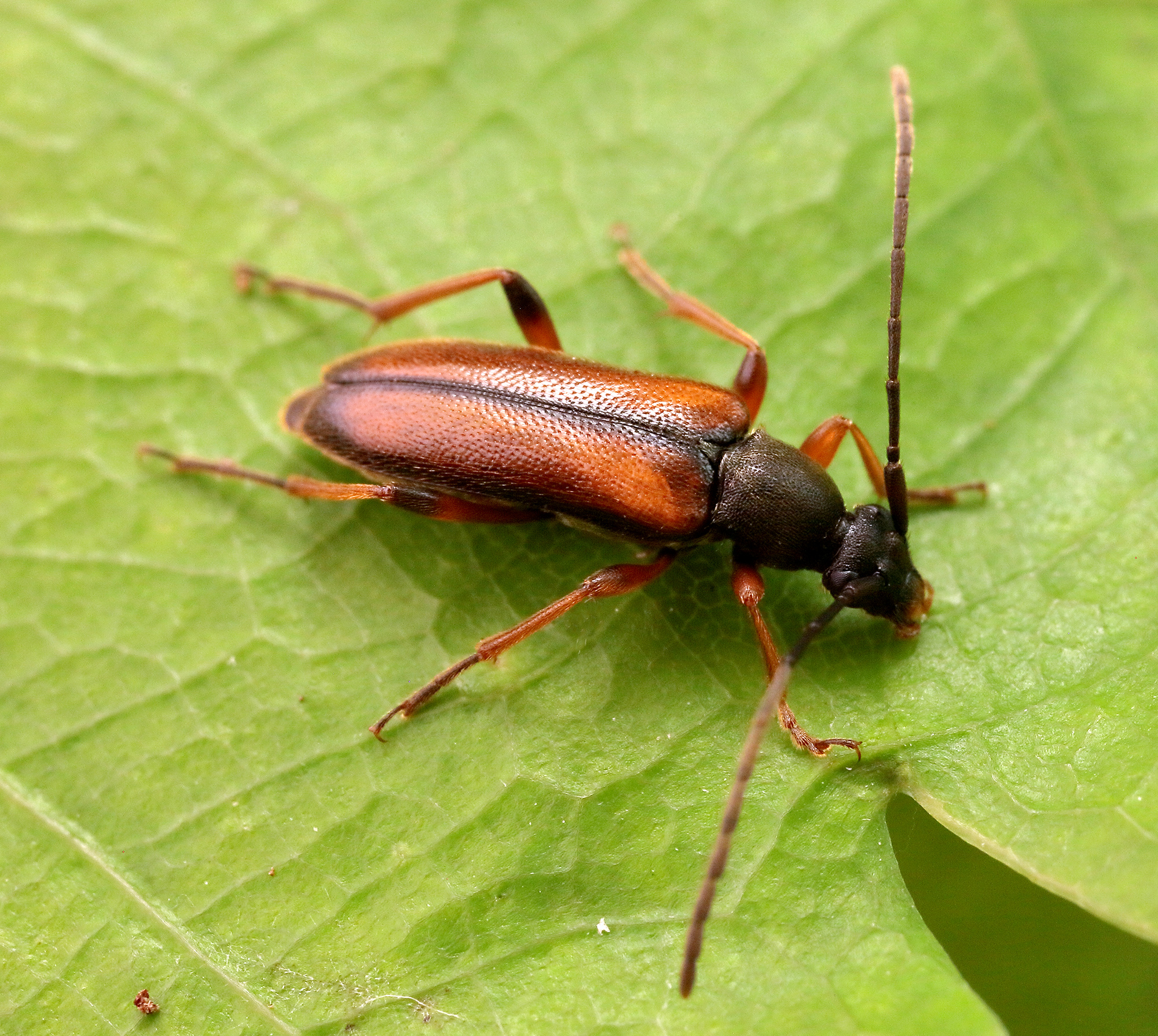Alosterna tabacicolor, an Eurasian species widespread from the Cantabrian Mts. to Japan, northwards to the North Cape,
restricted to mountains in the southern part of its distribution. Six subspecies have been recognised, the nominal form is a common flower
visitor from Europe to Kazakhstan. A. tabacicolor females lay eggs in rotten humid branches of broadleaf trees, exceptionally of Pinaceae.
Pupation occurs inside the wood in spring, life-cycle lasts two years. Adults, active from late April to July, are diurnal
and anthophilous [▽][❖].
| Body length: | 6 - 10 mm |
| Life cycle: | 2 years |
| Adults in: | April - July |
| Host plant: | larval development in extremely decayed wood material of deciduous and coniferous trees
(Quercus, Betula, Corylus, Carpinus, Ulmus, Acer, Salix, Picea, Pinus) |
| Distribution: | Europe, Russia, Caucasus, North Kazakhstan, Transcaucasia, Iran, Near East |
The depicted mounted beetle were collected on flowers in Würgau environs (Lower Franconia, Bavaria, Germany) in spring 1972. The living specimen
was collected in Křivoklátsko Protected Landscape Area (Rakovník district, Central Bohemia, Czechia) on May 31, 2024;
Collected by Udo Schmidt and Milan Lovětínský
[▽]
Sláma M.E.F.:
Tesaříkovití – Cerambycidae České republiky a Slovenské republiky / Cerambycidae of the Czech Republic and Slovak Republic.
Milan Sláma private printing, Krhanice, 383pp [pages 261-262], 1998 [ISBN: 80-238-2627-1].
[download  ]
]
[❖]
Vitali F.:
Atlas of the Insects of the Grand-Duchy of Luxembourg: Coleoptera, Cerambycidae.
Ferrantia, Musée national d’histoire naturelle, Luxembourg 79: 1-208 [pages 92-93], 2018.
[download  ]
]



